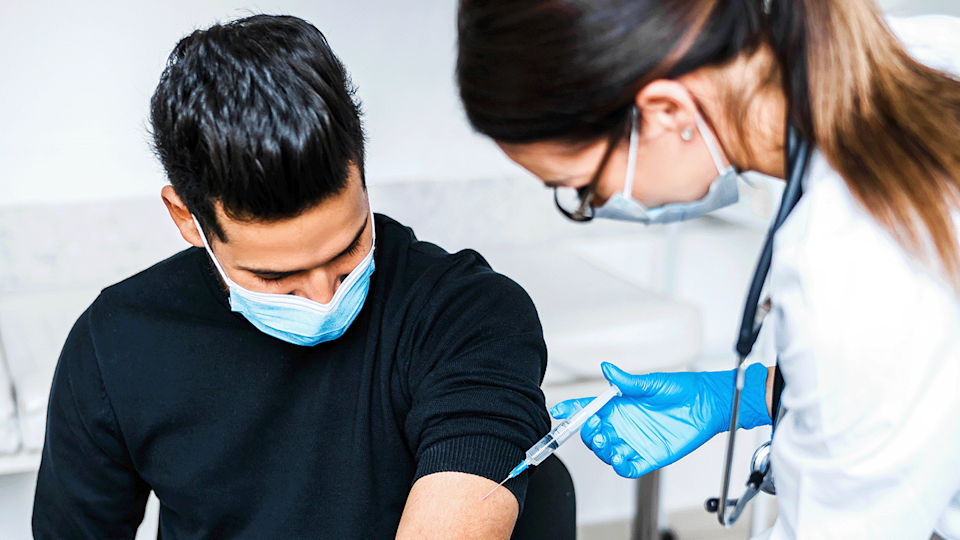Ensuring your voice is heard is never more important than when receiving maternity care. If you don’t feel like concerns are being taken seriously by your healthcare provider, we have provided the tools you need to advocate for yourself and your baby.

Medical negligence
The importance of Vitamin K for your newborn
Vitamin K is vital for your newborns’ health and its important parents are aware of the impact it can have on their child’s wellbeing.
Welcoming a new member to the family is a happy celebration and as parents, your main concern is ensuring your baby's health is the best it can be. One crucial aspect of newborn care that might not be on your radar is Vitamin K.
Vitamin K is a fat-soluble Vitamin that plays a crucial role in blood clotting and helping wounds to heal. Without adequate levels, a newborn is at risk of bleeding disorders, which can lead to serious health complications, and in some cases can lead to fatalities. Specifically, Vitamin K is essential to produce clotting factors that help the blood to coagulate properly. This ensures that your baby's body can respond to injuries or trauma effectively.
When should your baby have Vitamin K?
Newborns are typically born with low levels of Vitamin K because it does not cross the placenta very effectively. Vitamin K is discussed with the midwife prior to birth and is given via needle into the baby's leg after consent has been obtained. Consequently, it is recommended that all newborns receive a Vitamin K shot shortly after birth. The optimal time for this injection is within the first six hours of life. Hospitals can administer the vitamin orally, which usually requires more than one dose. Some parents choose to have oral Vitamin K or decline all together.
It is important that parents have discussed this with their midwife and their preferences. NICE recommends all newborn babies are given Vitamin K to prevent haemorrhagic disease of the newborn, a life-threatening bleeding condition that might occur in the first week of a baby's life.
How to check if your baby has received Vitamin K?
It is important to know whether your baby has received the necessary dose of Vitamin K, as it may not always be apparent. Most hospitals have protocols in place to ensure the administration of Vitamin K, and it is typically documented in your baby's medical records. You can ask your healthcare provider about your baby's Vitamin K status if you have any concerns. You can also look for signs of Vitamin K deficiency in your child. With a deficiency, they might bruise or bleed for no apparent reason, though in some cases, symptoms do not always show up.
If you discover that your baby hasn't received the recommended Vitamin K injection and you're still in the hospital, it is important to take immediate action. Speak to your healthcare provider and express your concerns and ask to see the hospital records. It may be a simple oversight, and they can rectify the situation promptly. Ensuring your baby receives the Vitamin K shot is crucial for their health, so don't hesitate to advocate for your baby.
How we can help
In some unfortunate cases, a hospital may fail to administer Vitamin K to your baby. If this happens, it is essential to reach out to medical professionals and discuss the situation. You should also consult with an experienced clinical negligence solicitor to explore your options.
At Slater and Gordon, we are known for their ability to find the right approach and persevering to ensure you receive a favourable outcome and any support you need during and after your case has been settled. We aren't here to just prove your medical care was negligent or substandard, we're here to get you the rehabilitation, finances and support you need so you can look forward to the future. Your baby's health and well-being are paramount, and it is essential to take action to ensure they receive the care they deserve. It is your right to advocate for your child’s care. If you feel you have experienced substandard care for you or your child, contact us online or on 0330 041 5869


Often, when women approach healthcare professionals with concerns about their health, they’re downplayed or ignored, which can have life-changing implications. In fact, 52% of women feel like a “number” when seeking help from their GP. We have provided the tools you need to advocate for yourself.


Often, incidents of medical negligence occur, even if patients flag problems to their doctor. You may not feel able to advocate for yourself, so we want to empower people that haven’t felt listened to by providing resources allowing you to be your own advocate.